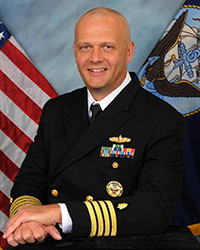Posted by Navy Capt. Mike Colston, DCoE director on May 2, 2016

This article by Capt. Mike Colston, director of the Defense Centers of Excellence for Psychological Health and Traumatic Brain Injury, is reposted from the Military Health System in recognition of Mental Health Awareness month.
When a colleague has the flu or breaks a bone you naturally expect them to take time off from work to get medical attention and recover. It may be harder to detect a mental health concern in a colleague or even in ourselves. However, when a mental health concern impacts daily functioning it is imperative to get help. We should expect – and in fact encourage – someone with a mental health concern to seek medical attention with the same no-nonsense, practical attitude with which we would advise a colleague with a physical injury to go to the doctor. Because of perceived stigma surrounding mental health issues and treatment I know that many of our beneficiaries fail to get help or won’t talk openly about seeking mental health care.
You should know that seeking care can actually strengthen and protect your career by minimizing the impact of symptoms on your performance. Not seeking care worsens your health and increases the likelihood of an adverse event (e.g., anger, outbursts, driving under the influence, fights, being late to work) that could lead to loss of rank, personal relationships or leadership positions.